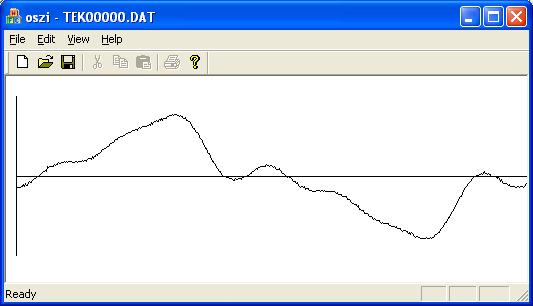
The data in the file are only a long list of floats, as you can see in the list on the right We skip the first 4 lines and then we scan line by line info: if your data file uses commas instead of dots, you must convert all commas to dots if you don't have tektronix oscilloscope to save a data file, download this file: download the osci data file (zipped 9Kbyte) |
10000 2e-07 -356.9 0 -0.23 -0.22 -0.22 -0.24 -0.23 -0.23 -0.25 -0.22 -0.21 -0.23 -0.24 -0.21 -0.24 -0.24 .... .... |
